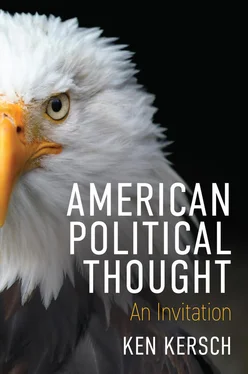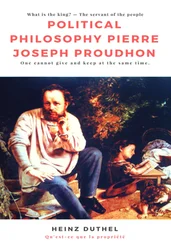1939–1962:Civil rights movement sit-ins
1941 (December 7):Japanese attack on Pearl Harbor, Hawaii; US enters World War II
1941–1945:World War II
1944:Normandy Invasion
1945:US drops atomic bombs on Japanese cities of Hiroshima and Nagasaki
1945:Yalta Conference
1947–1991:Cold War
1947:Jackie Robinson breaks baseball color barrier
1948:Alger Hiss–Whittaker Chambers hearings
1948–1952:Chinese Communist Revolution
1949–1951 (circa):US television networks established
1950:Mattachine Society founded
1950–1953:Korean War
1950–1954:“McCarthy era” anticommunist crusade
1953:Soviets test hydrogen bomb
Chapter 7 Radical Stirrings, Civil Rights, the Contentious 1960s, and the Rise of Modern Conservatism
1954: Brown v. Board of Education
1955:Lynching of Emmitt Till
1955:Daughters of Bilitis founded
1955: National Review founded by William F. Buckley Jr.
1955–1956:Montgomery Bus Boycott
1955–1975:Vietnam Wa r
1957:Russian Sputnik 1 satellite launched
1959:Nixon–Khrushchev “Kitchen Debate”
1960:Students for a Democratic Society founded
1960:Civil rights movement sit-ins begin at Greensboro, North Carolina
1960:Young Americans for Freedom founded
1960:Christian Broadcasting Network founded
1961:Bay of Pigs invasion (failed)
1961:Freedom Rides
1962:Cuban Missile Crisis
1963:March on Washington for Jobs and Freedom
1963:Birmingham 16th Street Baptist Church bombing
1963 (November 22):John F. Kennedy assassinated, Dallas
1963–1969:Lyndon Baines Johnson presidency
1964 (June):Murder of civil rights workers James Chaney, Andrew Goodman, and Michael Schwerner, Neshoba County, Mississippi
1964 (June–August):Mississippi Freedom Summer
1964:Civil Rights Act of 1964
1964:Barry Goldwater nomination
1964:UC Berkeley Free Speech movement
1964–1965:Great Society social welfare programs, including Medicare and Medicaid, launched
1965:Selma to Montgomery Voting Rights marches
1965:Voting Rights Act of 1965
1965:Delano Grape Boycott (Cesar Chavez)
1965:Malcolm X assassinated, New York City
1966:National Organization for Women founded
1966:Black Panther Party founded.
1967:Summer of Love, Haight-Asbury, San Francisco
1968 (April 4):Martin Luther King Jr. assassinated, Memphis
1968 (April–May):Urban riots
1968 (June 6):Robert F. Kennedy assassinated, Los Angeles
1968:Democratic National Convention riots, Chicago
1969:Stonewall uprising
1969 (July 20):Apollo 11 moon landing
1969 (August):Woodstock Music Festival
1969–1974:Richard M. Nixon presidency
1970:First Earth Day
1972:Eagle Forum established by Phyllis Schlafly
Chapter 8 The Identity and Post-Materialist Left, the New Right, and Third Way Liberalism
1972–1974:Watergate scandal; Nixon resigns
1973: Roe v. Wade
1973–1974:OPEC Oil Crisis
1979:Moral Majority founded
1981–1989:Ronald Reagan presidency
1982:Gay Men’s Health Crisis founded
1985:Democratic Leadership Council founded
1986:Operation Rescue founded
1987:ACT-UP founded
1990–1991:Persian Gulf War
1992:Los Angeles Riots
1992:North American Free Trade Agreement (NAFTA)
1993:First World Trade Center bombing
1995:Oklahoma City federal building bombing
1998:Bill Clinton–Monica Lewinsky scandal
2001 (September 11):Al-Qaeda terrorist attacks on New York and Washington, DC
2001:US invasion of Afghanistan
2001– :“War on Terror”
2002:Department of Homeland Security founded
2003–2011:Second Iraq War
2005:Hurricane Katrina
Chapter 9 Conclusion
2008 (September):Financial Crisis/Great Recession
2008:Election of Barack Obama
2010: Citizens United v. Federal Election Commission
2010:Affordable [Health] Care Act
2011:Occupy Wall Street movement
2013:Boston Marathon bombings
2013:Black Lives Matter founded
2014:Ferguson, Missouri, uprising
2015: Obergefell v. Hodges
2016:Donald Trump elected; “American Carnage” Inaugural
2019:Green New Deal Resolution introduced
2019–2020:Donald Trump impeachment and acquittal
2020 (March)– :Coronavirus/Covid-19 pandemic
2020:George Floyd uprising against racist police violence and white supremacy
1Themes and Frameworks in American Political Thought
Who gets to tell you what to do? Asking that question about a group of people comprising a political community – a polis , or polity – is the foundational question of the study of politics.
The question can be considered in two senses: the positive and the normative . The first takes up the question of who gets to tell you what to do as a matter of real-world fact. As a real-world fact, it can be studied empirically by asking: “Who, in fact, has demonstrated the power to direct, or coerce, you into doing A rather than B?” Positive approaches to the exercise of political power bracket judgments about authorized or unauthorized, justified or unjustified, good and bad, right and wrong. They aspire only to accuracy: the facts of the world, as it actually works, and is. The second – the normative – sense of the question, by contrast, takes up the question of who gets to tell you what to do by asking if the person, official, or institution claiming that power has been authorized to do so, is justified in doing so, does so for good or for ill, rightly or wrongly. Normative approaches to the exercise of political power – arising out of what the sociologist Max Weber called the “fact–value” distinction in the social sciences – invite and require moral judgment either of the particular commandment issued by a political actor, or of the underlying foundations of the authorization of power to that superintending actor. Normative approaches to the exercise of political power ask questions about authority, legitimacy, legality, and justice.
Читать дальше












